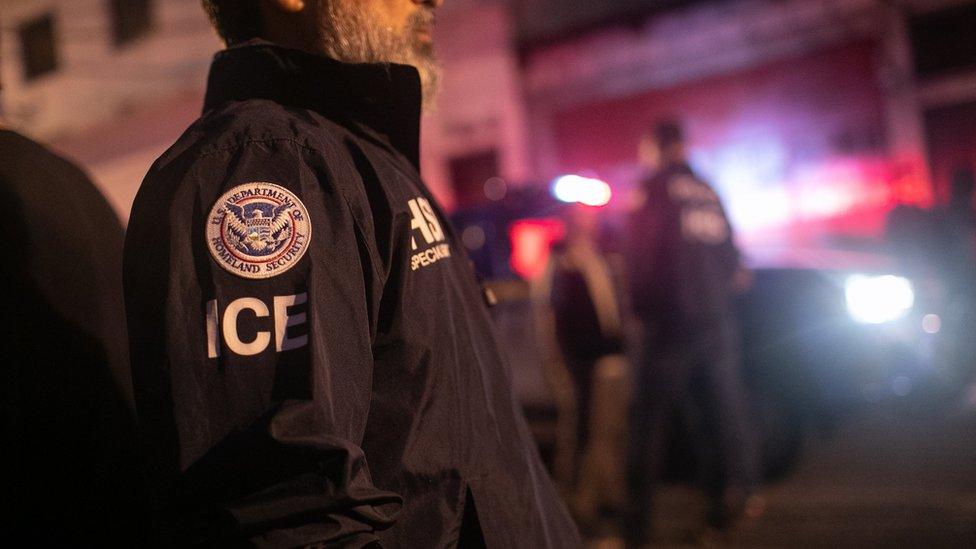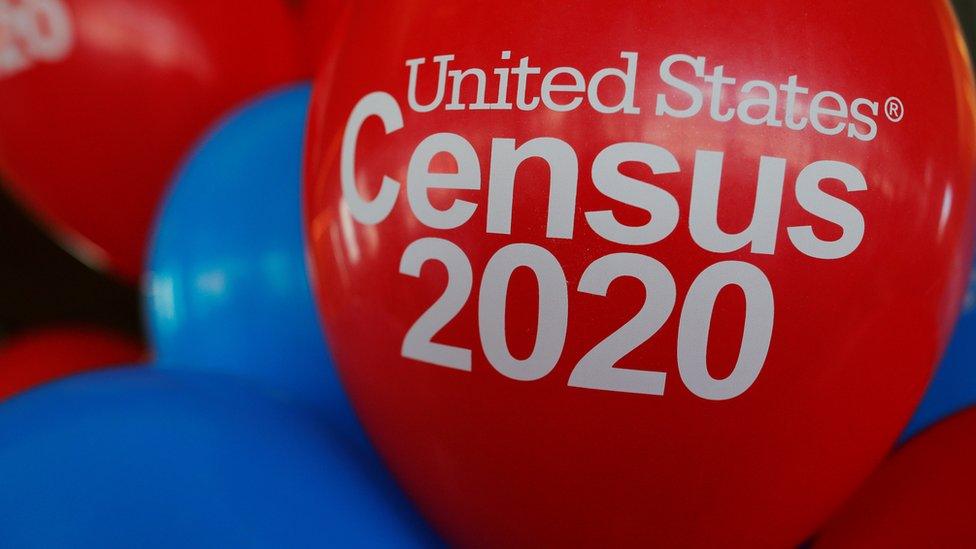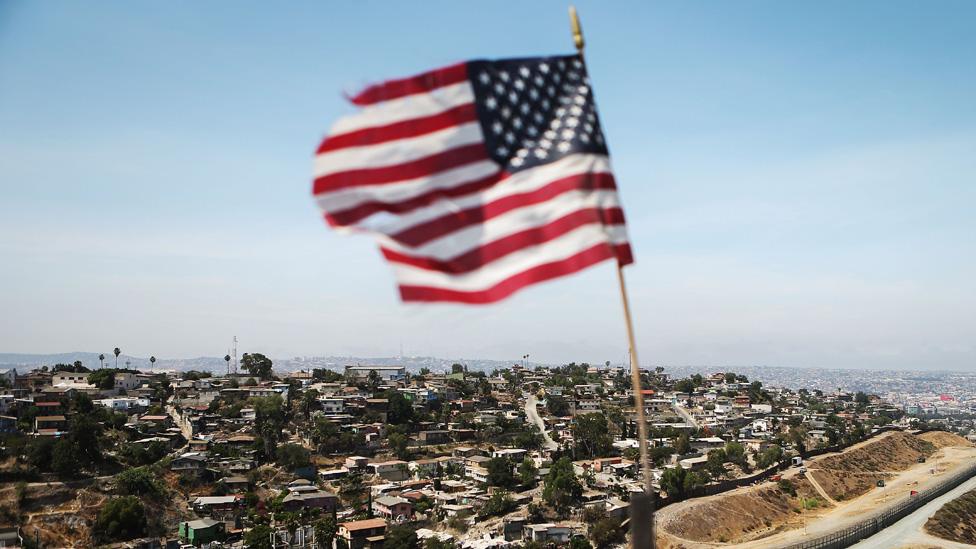ICE and FBI used facial recognition to search driver-licence databases
- Published

Immigration and Customs Enforcement (ICE) agents have scanned millions of licences
US immigration officers have used facial recognition technology to search drivers' licences in states that issue licences to undocumented immigrants.
Millions of licences were scanned by FBI and ICE agents between 2014 and 2017, without the holders knowing.
Records of the searches were obtained by Georgetown Law researchers and passed on to the Washington Post.
The two agencies were reportedly given access by DMV offices directly, without going through state legislators.
This is thought to be the first known case of ICE agents using facial recognition technology to scan drivers' licences for surveillance purposes.
'A huge bait and switch'
Some states, including New York, Washington, and the District of Columbia, allow undocumented migrants to obtain driver's licences, provided they show evidence that they're resident in the state and pass a driving test.
While police departments hold data such as fingerprints and DNA that are taken from criminal suspects, the Department of Motor Vehicles (DMV) holds a far larger database of information on residents.
The vast majority of people whose data is held by the DMV have never been suspected of a crime.
The scanning of the DMV database by ICE and the FBI has been widely criticised by rights campaigners and activists. Harrison Rudolph, an associate at Georgetown Law's Center on Privacy and Technology, told the New York Times that the revelations were "a scandal", external.
"These states have never told undocumented people that when they apply for a driver's licence they are also turning over their face to Ice," he said. "That is a huge bait and switch."
From 2018: Could Ice be abolished?
Barbara Peña Solis, from Raices immigration law centre in Texas, tweeted that the practice was "surveillance tech with a political agenda", external and said it could have far-reaching consequences.
She wrote: "Besides targeting undocumented individuals, ICE can also target attorneys, journalists and activists. Why? ICE isn't obtaining consent."
In a statement sent to the BBC, the agency said it would not comment "due to law-enforcement sensitivities". However, it added that its work with other agencies was "established procedure that is consistent with other law enforcement agencies".
The FBI did not comment directly when contacted by the Washington Post, but referred the US paper to a previous statement, external made by its deputy assistant director in defence of facial recognition technology.
- Published4 July 2019

- Published29 November 2018
